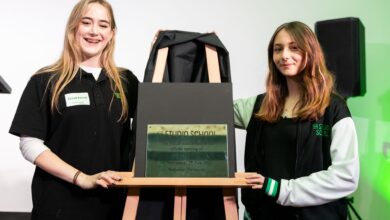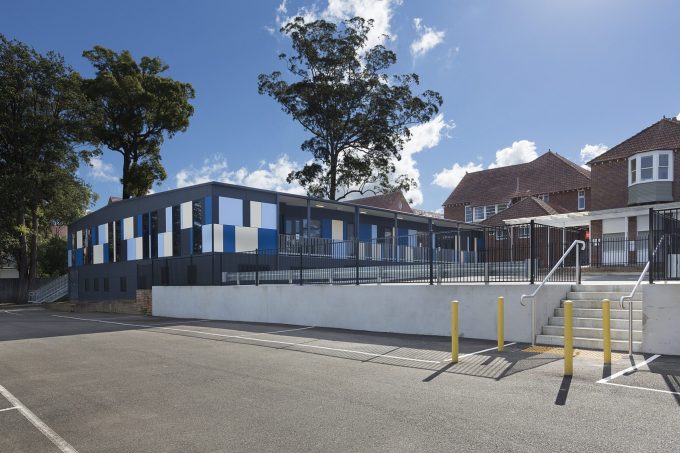School students who had COVID-19 report stigma and bullying. How can we stop it?

Queensland school students have reportedly been bullied after being diagnosed with COVID-19 and have struggled to return to school as a result.
The Queensland Department of Education stated it hasn’t heard of any bullying related to the COVID-19 outbreak. Given the nature of bullying, this isn’t necessarily surprising.
Stigma related to being diagnosed with COVID-19 has the potential for school students to be devalued, rejected and excluded. This is synonymous with bullying and may reflect students looking for someone to blame for the impacts of COVID-19 on their lives.
Bullying is often misunderstood. It’s a specific type of aggression that occurs repeatedly, is harmful and involves an imbalance of power. This behaviour could include verbal, physical and indirect or social bullying (which arguably includes cyber-bullying). It’s often unclear who should take on the responsibility of acting on bullying.
All types of bullying, especially indirect and social bullying, are often hidden. As a result, bullying can be very difficult to identify and address – even more so in the case of online behaviour and cyber-bullying. This lack of visibility probably explains why the Queensland Department of Education hasn’t heard reports of bullying.
How is the pandemic a factor?
Being empowered is not something we generally think about with school students. Youth are typically at the whims of other people’s power. The ongoing uncertainty, restrictions and lockdowns due to COVID-19 seem likely to reinforce this lack of power and control.
Coping with stress and school or study-related problems were already the most common concerns reported by Australian adolescents. During the COVID-19 pandemic, young people have experienced increased stress. They may be especially vulnerable to mental health issues such as anxiety and depression during lockdowns.
These impacts might lead to some students seeking to exert power and control by bullying other students in relation to being diagnosed with COVID-19. This could be one problematic way students attempt to cope with their situation.
However, this may or may not be the case. Bullying is a complex behaviour. We simply don’t know enough about the COVID-positive students being bullied and there may be a broader context to these reports.
For example, there may be a history of bullying that parents, teachers and schools are unaware of. This is especially the case with indirect, social and cyber-bullying.
Bullying can cause lasting harm
The impacts of bullying are relatively clear. Bullying and emotional abuse are a significant concern for young people. It’s a common experience, which can have long-term negative impacts on mental health and overall wellbeing.
Bullying can result in feelings of rejection, exclusion, isolation and low self-esteem. Bullying appears to be linked to serious mental health issues like depression.
However, it’s less clear how to intervene successfully when bullying occurs.
Why is it so hard to overcome?
Anti-bullying approaches are the main way schools deal with bullying. While these approaches claim strong support, the actual evidence for them varies considerably.
Some anti-bullying interventions which focus on universal, whole-school approaches reduce bullying. However, other approaches often achieve no reduction. Even more concerning, some result in increases in bullying.
Bullying behaviour is often presented as a simplistic relationship between “victim” and “bully”. This is problematic, as bullying is a complex cyclical relationship.
Behaviours exist when they’re useful. Given that bullying occurs across human cultures, it’s interesting to consider whether and how bullying benefits some people. If it does, simply saying we don’t accept bullying may not be an effective solution.
Another way of thinking about bullying is that it’s a way of describing power imbalances in relationships. Providing school students, parents and teachers with an understanding of this might be a valuable way forward.
So, what should schools and parents do?
This is a difficult question to answer. It often falls to teachers and schools to act on bullying that occurs both within and outside school.
Schools are certainly part of the solution, as they’re an important part of all students’ social world. But it should be emphasised that schools are only a part of the solution to bullying.
Schools can contribute to breaking down COVID-related stigma, but we need to be conscious that schools and teachers are not medical professionals and that the stigma reflects broader community concerns. A systemic approach involving schools, medical professionals and students’ families is more likely to have a positive effect.
Schools use a range of strategies to support students being bullied. These include:
- using a consistent whole-of-school approach
- providing education about bullying
- focusing on prosocial behaviour such as co-operating with others to achieve common goals
- providing access to mental health support where appropriate.
Where students have experienced bullying after contracting COVID-19, schools might supplement these approaches by reinforcing health advice that medical professionals have provided. This is a teachable moment, but teachers aren’t health experts, and medical professionals aren’t education experts. Reinforcing official health advice will have more face value and be more difficult to dismiss.
Parents and caregivers should talk with their children about bullying and normalise their feelings and concerns about COVID-19. As with schools, there is a need to reinforce the health advice from medical professionals. Look after your child’s basic mental health – like sleep, diet and physical activity – and seek help if you need to.
If this article has raised issues for you, or if you’re concerned about someone you know, call Lifeline on 13 11 14 or Beyond Blue on 1300 224 636.![]()







